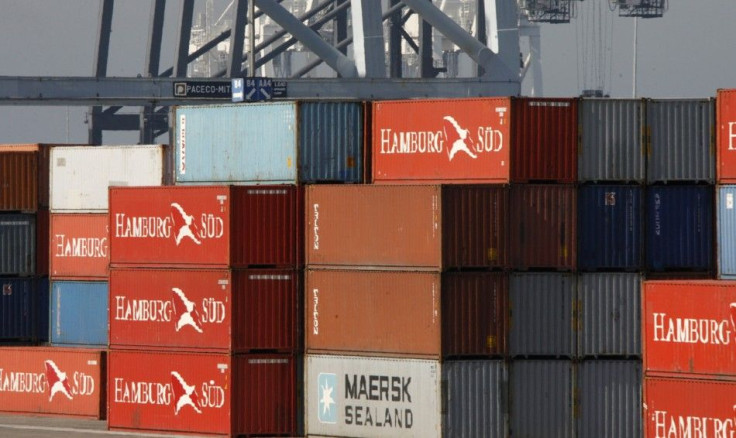Small Business Exporting Advice on Foreign Operations

Operating in a foreign market can be daunting. For small business exporters, it is therefore crucial to receive advice and support from business partners.
Two of the most important relationships they will likely form are with a freight forwarder and a foreign distributer, said Jim Foley, director at the Illinois SBDC International Trade Center at Bradley University and the author of The Global Entrepreneur.
Freight Forwarder
A freight forwarder ships products to overseas markets. These businesses often act as consultants to their potential clients.
They can help small business exporters navigate the world of tariffs and other regulatory requirements certain products may have for specific countries.
To choose a freight forwarder, small business exporters can look up local members of the National Customs Brokers & Forwarders Association of America (NCBFAA), said Foley.
Regarding the decision to choose a small operation or a big one (like Kuehne + Nagel), Foley said a small player may give small businesses more attention while a big player is more established.
Foreign Distributor
Once small businesses' products are exported and arrive in foreign countries, they need to be distributed.
One option is to have no local representation and do direct sales through e-mail and phone or by traveling to the country. This may work for exporters that sell high-cost and low-volume products.
Another option is setting up shop in the foreign countries (foreign direct investment), which may be justified if the foreign market is important enough and if the exporter has enough resources.
The most common option for small business exporters, however, is relying on foreign distributers, said Foley.
Foreign distrusters often play huge roles for small business exporters. In their local markets, they could perform marketing, PR and even customer service functions and often in essence act as the face of the product they are distributing.
Making a List
The first step in choosing a foreign distributer is making a list.
A good place to start is looking up what distributers companies making complementary products use, said Foley.
For example, an LCD projector manufacturer looking to export to Australia could look up what Australian distributers a white board manufacturer uses.
Another way is to enlist the help of the U.S. government. For a reasonable fee, the U.S. Commercial Service can provide a list of distributors (International Partners Search) or even set up in-person interviews with them (Gold Key Service).
Lastly, small business exporters can use a private database like us.kompass.com.
Whittling it Down
To narrow down the list, small business exporters should check if the distributer already reaches the retailers and customers they are targeting.
To use the LCD projector manufacturer example again, a distributer who already services white board manufacturers is likely a good fit.
Small business exporter should also consider the geographic coverage, capacity, professionalism, financial strength and technical abilities (if distributing a complex piece of machinery) of the distributer.
Lastly, they should assess the marketing capability of the distributer (if they do not want to do the marketing themselves), such as what trade shows it attends, what publication it advertises in and what retailers it will approach.
Negotiating the Contract
Exclusivity will likely be one of the first and most important things that come up in contract negotiations.
Foley thinks it often makes sense for small business exporters to offer foreign distributers exclusivity because it will motivate them to commit resources to marketing.
If there is no exclusivity, distributers may worry that a part of their marketing efforts will benefit competing distributors in their local markets.
To protect the exporters, Foley recommends a clause in the exclusivity contract that states that if the distributer does not hit certain sales targets in a specific timeframe, then the exclusivity would be lifted.
Other important negotiating points are marketing commitments and pricing.
Payment Terms
Payment terms can be a very touchy subject, said Foley, because exportera and distributers often have polar opposite expectations.
That is, exporters want prepayment for goods while distributers want a line of credit for them.
One solution around this problem is for the small business exporter to extend the line of credit to the distributer and get the Ex-Im Bank insurance for it, which guarantees 90 percent of the loan amount, said Foley.
READ ALSO: Small Business Plan: A Template for Making Sales
READ ALSO: Small Business Ideas for 2012: Why not go Global?
READ ALSO: Small Business Ideas for 2012: Selling to Uncle Sam
READ ALSO: Small Business Exporting Advice: Crucial First Steps
READ ALSO: Small Business Culture: How to Build a Winning Team
READ ALSO: Small Business Marketing Ideas, Tips from a Top Expert
READ ALSO: Managing a Small Business: How to Inspire Employee Loyalty
READ ALSO: Small Business Marketing Strategies that Work for Tight Budgets
READ ALSO: Small Business Ideas for Women at Home: Working with Realities
READ ALSO: Small Business Survival: Overcoming the Recession and More
READ ALSO: Small Business Loans: How They Work and What You Should Know
READ ALSO: Small Business Accounting: Tips, Tricks and Advice from TaxMama
READ ALSO: Starting a Small Business: Ideas and a Few Thousand is All You Need
READ ALSO: Small Business Strategic Planning: a Process for Success and Survival
© Copyright IBTimes 2024. All rights reserved.











